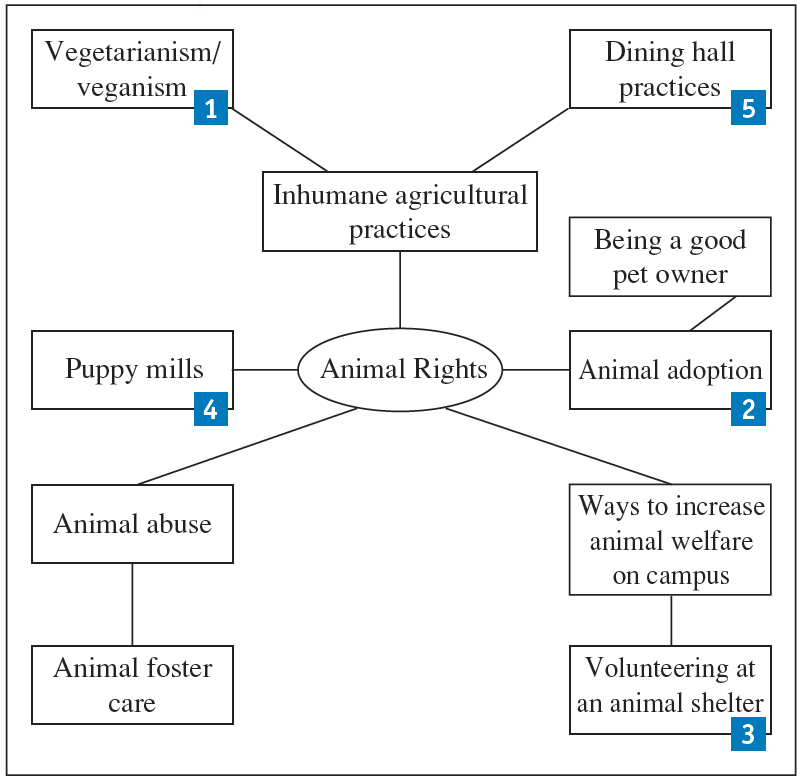From Source to Speech: Narrowing Your Topic to Fit Your Audience
Narrowing Your Topic to Fit Your Audience
Printed Page 52
From Source to Speech
Narrowing Your Topic to Fit Your Audience
How do you narrow a topic to fit the audience and the speech occasion? Consider the following case study.
A Case Study
Jenny is a member of the campus animal rights club and a student in a public speaking class. She is giving two persuasive speeches this semester: one to her public speaking class and one to the student council, as a representative of her club. For both presentations, Jenny plans to speak on the broad topic of animal rights. But she must narrow this topic considerably to fit each audience and speech occasion.
First, Jenny draws a topic map to generate ideas.

For each presentation, Jenny narrows her topic after considering her audience and the speech occasion.
PUBLIC SPEAKING CLASS (25–30 PEOPLE):

- Mixed ages, races, and ethnicities, and an even mix of males and females
- Busy with classes, jobs, sports, and clubs
- Half live in campus housing, where pets are not allowed

Jenny eliminates vegetarianism because she will be unlikely to change listeners’ minds in a six-minute speech.

She eliminates animal adoption because it may not be feasible for many students.

Volunteering at an animal shelter is an option for all animal lovers, even those who are not allowed to have pets on campus. Jenny argues that students should donate an hour a week to a nearby shelter, so that busy students can still participate.
STUDENT COUNCIL (8–10 PEOPLE):

- Mixed demographic characteristics
- Similar interests: government, maintaining a rich campus life, an investment in ethics and the honor code, and an interest in keeping student affairs within budget

Jenny eliminates puppy mills—though the student council may agree that the mills are harmful, they are not in a position to directly address the problem.

Jenny zeroes in on dining hall practices, which are directly tied to campus life. Her club’s proposed resolution to use free-range eggs in the campus dining hall benefits all students and requires the support of the council—an ideal topic for this audience.